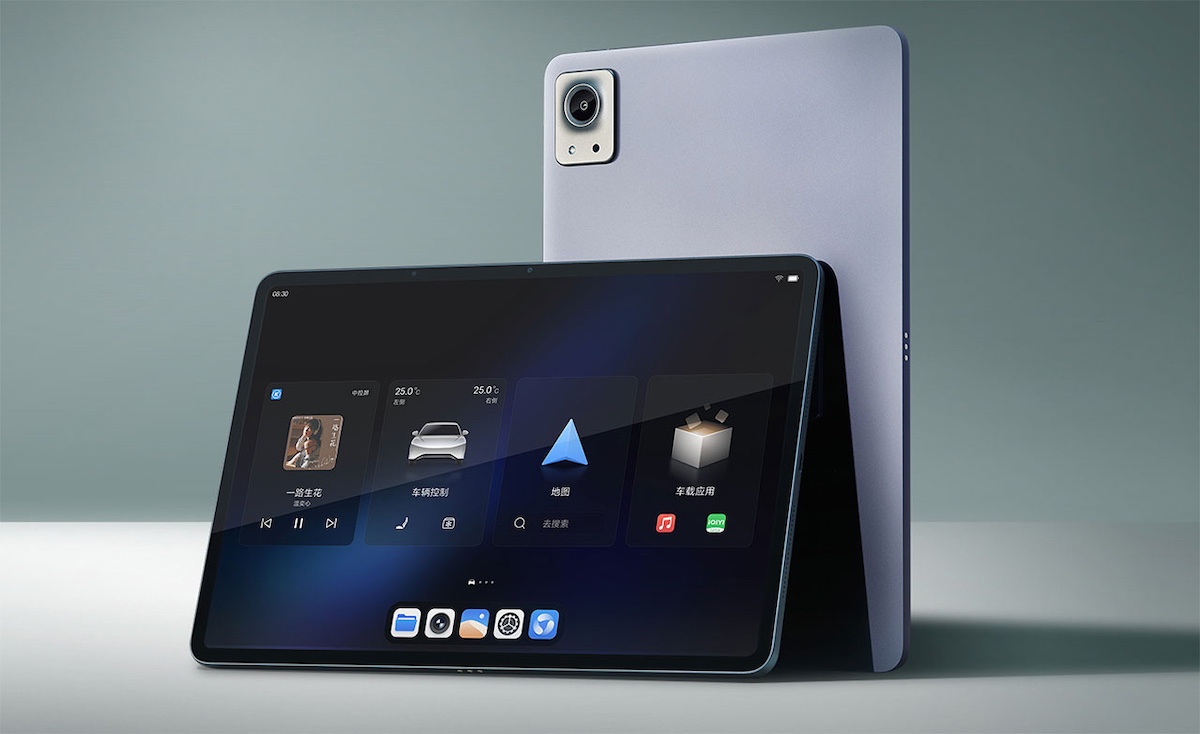Support CleanTechnica’s work through a Substack subscription or on Stripe.
Tesla has long been acclaimed for its vertical integration. However, BYD has gone much further in vertical integration and that seems to largely go under the radar. Now, in its latest vertical integration, BYD has developed its own custom tablet for the upcoming Fang Cheng Bao Tai 7.
Unfortunately, we don’t really have more details on the tablet. We’ll find out more when the Fang Cheng Bao Tai 7 comes out toward the end of the year. We just know it’ll connect with the vehicle system and enable multi-screen collaboration.
All of that said, this is not a complete novelty in the fast-innovating Chinese EV market.
“BYD’s in-house development of tablets comes at a time when Chinese consumers are increasingly valuing connectivity in in-vehicle information systems,” CnEVPost writes. “Xiaomi and Huawei are seen as providing superior experiences in this area, as they are already consumer electronics giants.”
“Nio Inc (NYSE: NIO) has also launched two generations of Nio Phone smartphones, hoping to increase the appeal of its vehicles by improving the connectivity between phones and its vehicles.
“However, there is currently no information about the third generation of Nio Phone, as the company has essentially shelved the project due to financial pressures.”
Is it all just a gimmick? Or does it really enhance the EV ownership experience in some ways? I don’t know. It’s hard to imagine what one needs beyond an app to manage a car. But maybe I’d realize the benefits more if I had a Tesla tablet that also linked with my Model 3. After all, many people who don’t have a modern, smart EV don’t understand the benefits of regular over-the-air software updates.
Lastly, it is perhaps not a big leap for BYD to do this anyway. BYD was a battery producer before it was a car producer, and it’s been a major white-label manufacturer of solar panels and various electronics. “For BYD, while it is renowned for its NEV and battery businesses, it is also one of China’s largest consumer electronics contract manufacturers, with clients including Huawei, Xiaomi, Oppo, Vivo, and Honor,” CnEVPost adds.
I guess we’re getting to the point where we have to ask: what parts of its cars does BYD not develop and produce itself?
Sign up for CleanTechnica’s Weekly Substack for Zach and Scott’s in-depth analyses and high level summaries, sign up for our daily newsletter, and follow us on Google News!
Have a tip for CleanTechnica? Want to advertise? Want to suggest a guest for our CleanTech Talk podcast? Contact us here.
Sign up for our daily newsletter for 15 new cleantech stories a day. Or sign up for our weekly one on top stories of the week if daily is too frequent.
CleanTechnica uses affiliate links. See our policy here.
CleanTechnica’s Comment Policy



